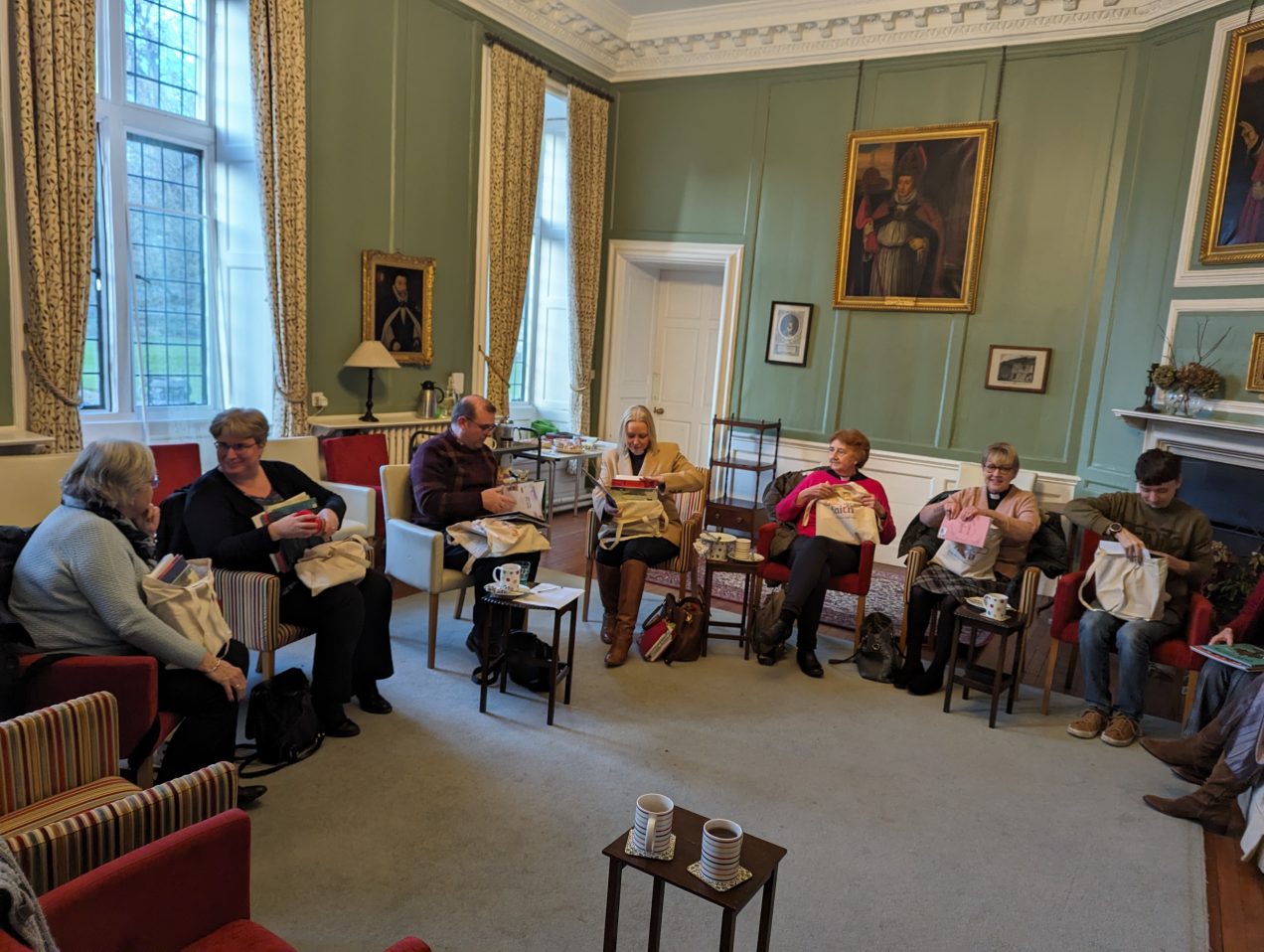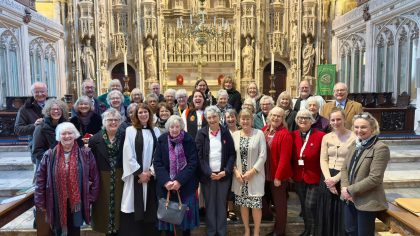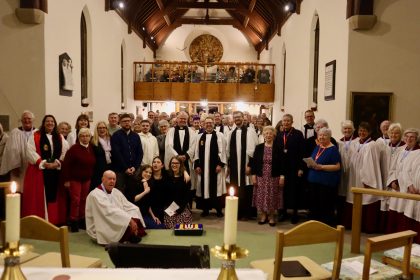Chatting Faith was an idea sparked from the Growing Faith initiative from the national church, part of its aim to double the number of young people and children within the Church of England by 2030. Essentially, the national church is looking to put young people at the heart of church life through a big cultural change. We need to look at new and innovative ways to engage with children and young people, such as through Growing Faith champions.
Another key way to connect with children and young people is to make faith an everyday topic. We can do this through ‘Growing Faith Intersections’ – the point where schools, churches and households intersect. If all three of these places are actively involved in discussing faith, the Growing Faith initiative is far more likely to succeed.
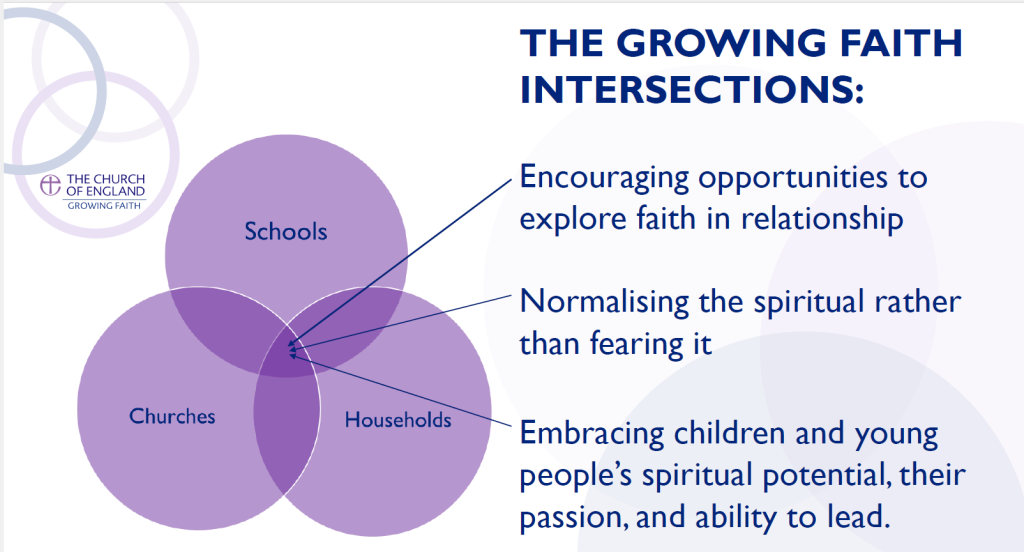
A recent report from the Growing Faith initiative, called ‘Growing Faith: Connections‘, argues that until churches, households and schools work together to normalise faith, each group will have a limited reach: ‘A significant observation from several quarters is that much current provision has tended toward centrally-provided programmes, run independently by churches or schools (at times, working in ‘silos’). This approach often remains at the relatively superficial level of one-off events and resources, though recent reports suggest this limits its effectiveness for growing faith’.
It has also been found that the weakest area for growing faith is at home. Many parents lack the confidence to discuss faith at home, and there is an emerging culture of employing professionals to teach children things like swimming and other sports – some people therefore think that it’s up to churches to teach children about God.
Normalising the Spiritual
Growing Faith, as well as the Chatting Faith programme, is about normalising the spiritual. We need to make faith an everyday topic – there doesn’t have to be a formal structure to the teaching and discussion. So, how can we go about normalising faith? One of the techniques used by Chatting Faith is relating everyday things, such as films, books, or the world around us, to the Bible.
For example, if a parent were teaching their child about the wide variety of trees that grow, they could ask questions such as whether the first trees God designed were fully grown, or started off as saplings. There doesn’t have to be a right answer to these questions – the idea is to simply spark a conversation!
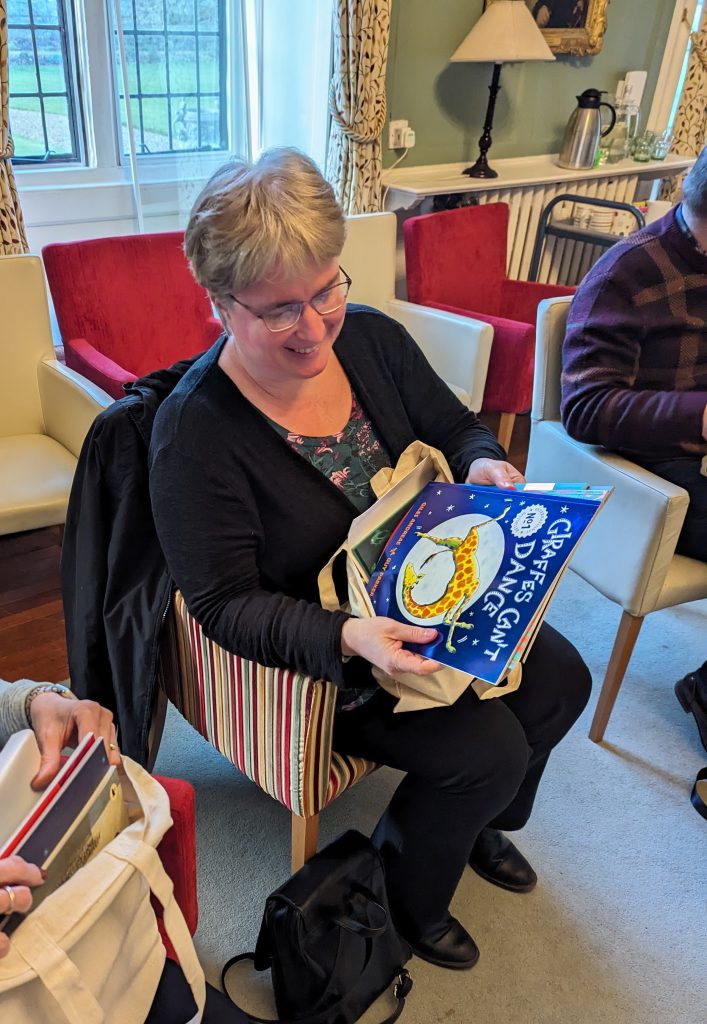
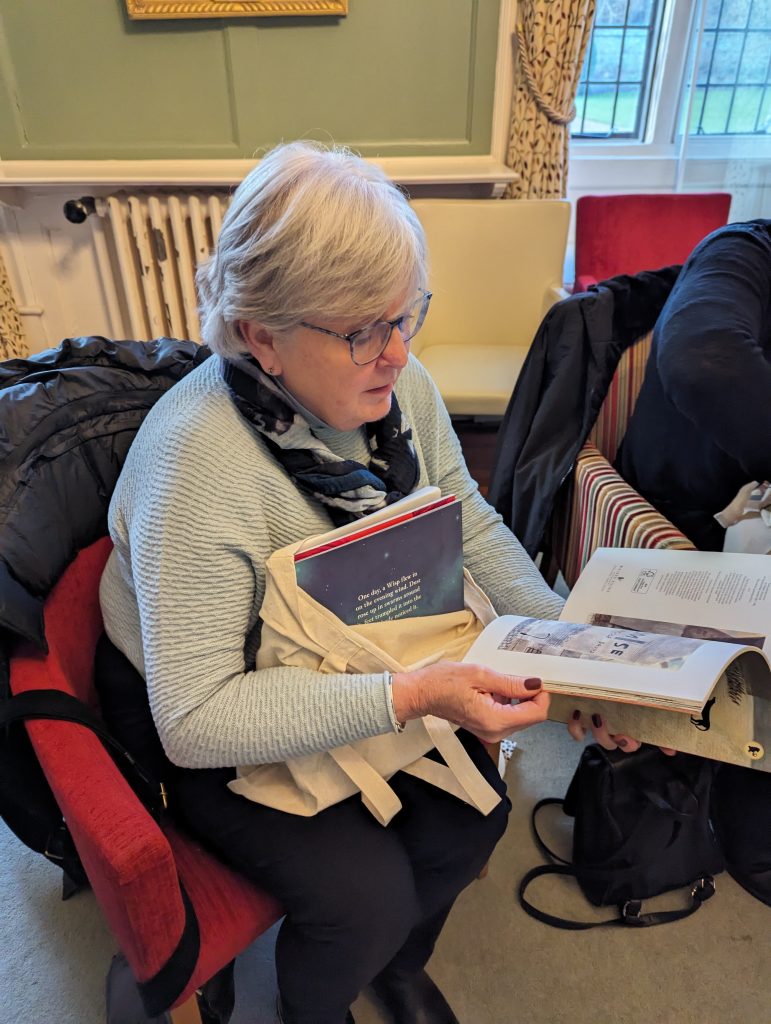
The starting point for these conversations will ideally be something that a child or young person is interested in. So, if a child had a passion for cars and trucks, a discussion could centre around the fact that God gave someone the idea to create such vehicles, as they haven’t been around forever!
The Chatting Faith Programme
Chatting Faith is a joint venture between the dioceses of Portsmouth and Winchester that provides resources to parents to reflect on aspects of faith children find in storybooks. Books are used as a springboard for relaxed conversations about the Christian faith.
On 16 January, a group of school governors and people involved with churches across the diocese met at Wolvesey to learn more about the Chatting Faith programme. As each of them worked with children and young people, in schools and churches, they were keen to look at new ways of engaging with young people.
The schools and churches the group came from were varied. From ethnicity to affluence, our diocese is home to diverse communities, and this can mean taking different approaches with the Chatting Faith programme. For instance, in areas where English is not the first language for many children, the reading level may not be as high as in other areas.
Chatting Faith can be a way to introduce family discipleship to the home, encouraging parents, caregivers and children to discuss faith in a comfortable setting.
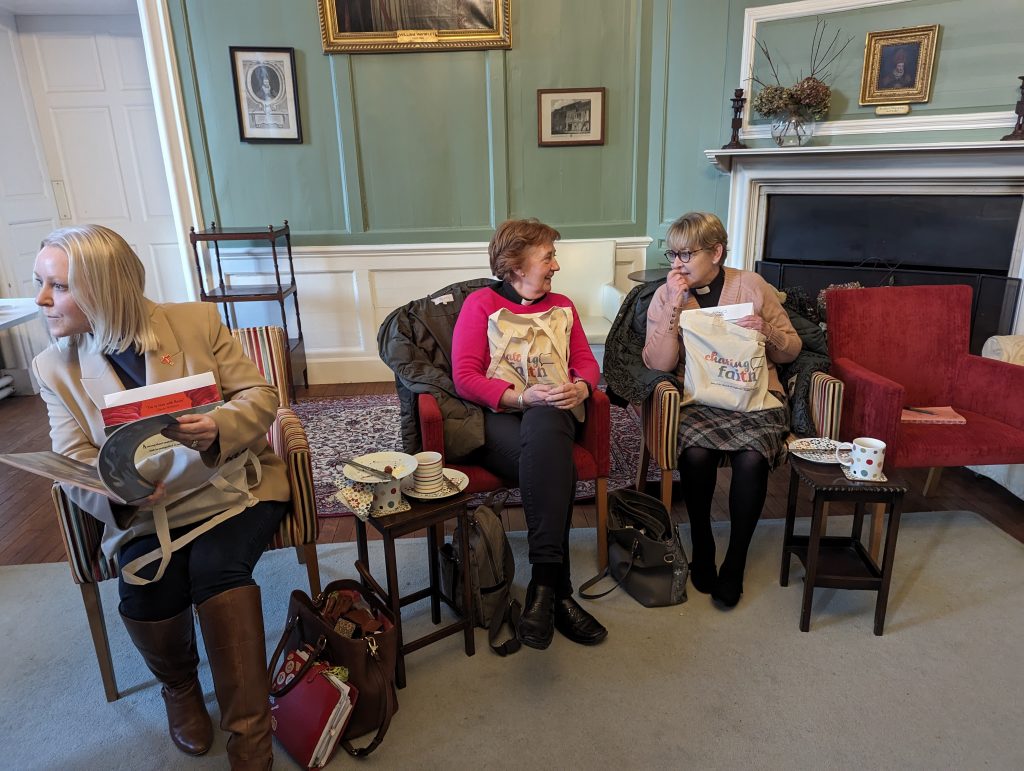
Next Steps for Chatting Faith
Since launching Chatting Faith, one cohort has received resources and training to help them encourage children to have relaxed conversations about Christianity. Feedback from some of the parents of this first cohort included not always having time to read long books with their children each night. Or families didn’t often read books together. Reading a book and then using it as a launching point to have a chat about faith may therefore not be an feasible option. Other forms of media, like poetry, were suggested instead. Poems are usually short, and therefore don’t take too much time to read! YouTube videos could also work, along with more digestible media.
A point was also raised about the chats feeling like homework. The Chatting Faith team therefore felt that, moving forward, it’s important to model to parents how to draw themes from books and other media, so that the conversations felt more natural and not scripted. Chatting Faith will aim to give parents the tools to talk about certain themes, so that they can relate any book to Bible stories, not just those books provided by the Chatting Faith programme.
This means that questions won’t be provided for each individual book included in the resource pack, but instead parents will be provided with generic questions which can be used for any book.
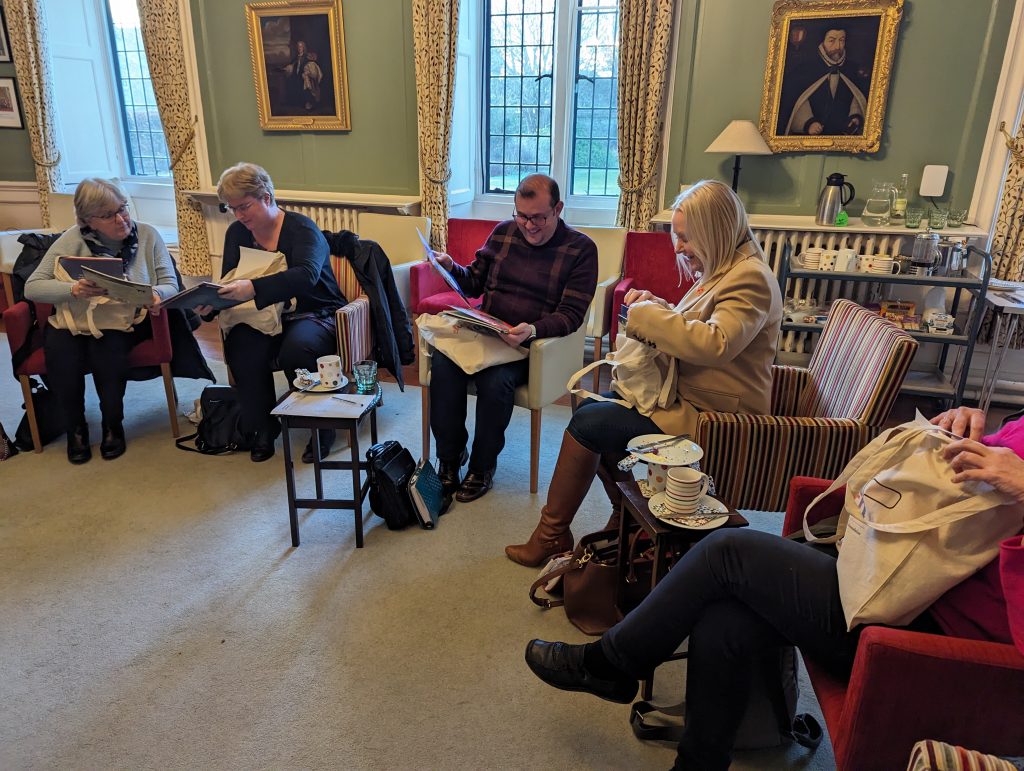
Another issue that was raised was that, in schools, the focus with reading tends to be what reading level a child is at. So, in order to have ‘Chatting Faith’ discussions, schools may need to rethink this approach, focusing on a child’s ability to discuss book themes as well as reading progress.
A final point that was brought up by the first cohort was that sometimes it’s beneficial for parents and children to learn together. When discussing the themes of a book, and how it relates to the Bible, parents need to be vulnerable, and admit that they don’t always have the answer. This isn’t always easy, but can lead to much more open conversations about faith.

